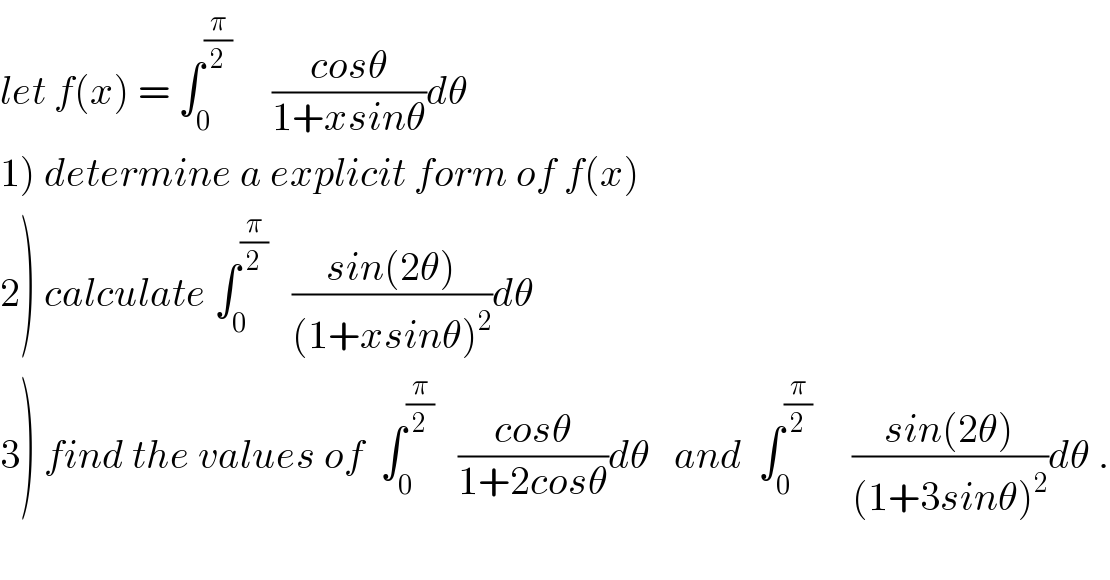
Question and Answers Forum
Question Number 43100 by maxmathsup by imad last updated on 07/Sep/18

Commented by maxmathsup by imad last updated on 08/Sep/18
![1) x=0 ⇒f(x)=∫_0 ^(π/2) cosθ dθ =1 x≠0 ⇒ f(x)= (1/x) ∫_0 ^(π/2) ((xcosθ)/(1+xsinθ))dθ =(1/x)[ln∣1+xsinθ∣]_0 ^(π/2) =((ln∣1+x∣)/x) with x≠−1 and we must study the case x=−1 2) we have f^′ (x) = −∫_0 ^(π/2) ((sinθ cosθ)/((1+xsinθ)^2 ))dθ =−(1/2) ∫_0 ^(π/2) ((sin(2θ))/((1+xsinθ)^2 ))dθ ⇒ ∫_0 ^(π/2) ((sin(2θ))/((1+xsinθ)^2 ))dθ =−2f^′ (x) but f^′ (x)=−(1/x^2 )ln∣1+x∣ +(1/(x(1+x))) ⇒ ∫_0 ^(π/2) ((sin(2θ))/((1+xsinθ)^2 ))dθ =((2ln∣1+x∣)/x^2 ) −(2/(x(x+1))) .](Q43244.png)
Commented by maxmathsup by imad last updated on 08/Sep/18

Answered by alex041103 last updated on 08/Sep/18

